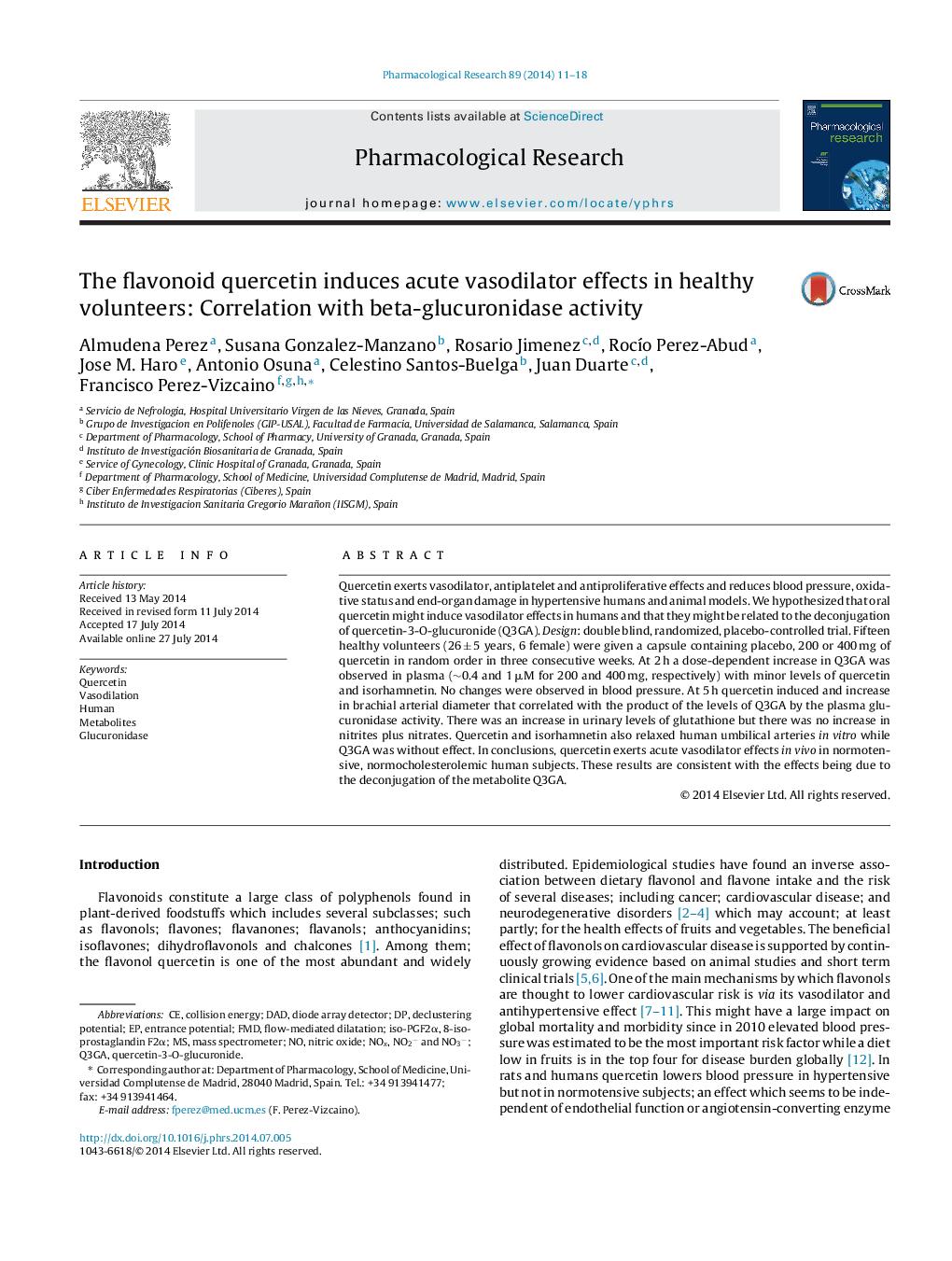| Article ID | Journal | Published Year | Pages | File Type |
|---|---|---|---|---|
| 5843099 | Pharmacological Research | 2014 | 8 Pages |
Quercetin exerts vasodilator, antiplatelet and antiproliferative effects and reduces blood pressure, oxidative status and end-organ damage in hypertensive humans and animal models. We hypothesized that oral quercetin might induce vasodilator effects in humans and that they might be related to the deconjugation of quercetin-3-O-glucuronide (Q3GA). Design: double blind, randomized, placebo-controlled trial. Fifteen healthy volunteers (26 ± 5 years, 6 female) were given a capsule containing placebo, 200 or 400 mg of quercetin in random order in three consecutive weeks. At 2 h a dose-dependent increase in Q3GA was observed in plasma (â¼0.4 and 1 μM for 200 and 400 mg, respectively) with minor levels of quercetin and isorhamnetin. No changes were observed in blood pressure. At 5 h quercetin induced and increase in brachial arterial diameter that correlated with the product of the levels of Q3GA by the plasma glucuronidase activity. There was an increase in urinary levels of glutathione but there was no increase in nitrites plus nitrates. Quercetin and isorhamnetin also relaxed human umbilical arteries in vitro while Q3GA was without effect. In conclusions, quercetin exerts acute vasodilator effects in vivo in normotensive, normocholesterolemic human subjects. These results are consistent with the effects being due to the deconjugation of the metabolite Q3GA.
Graphical abstractDownload high-res image (128KB)Download full-size image
